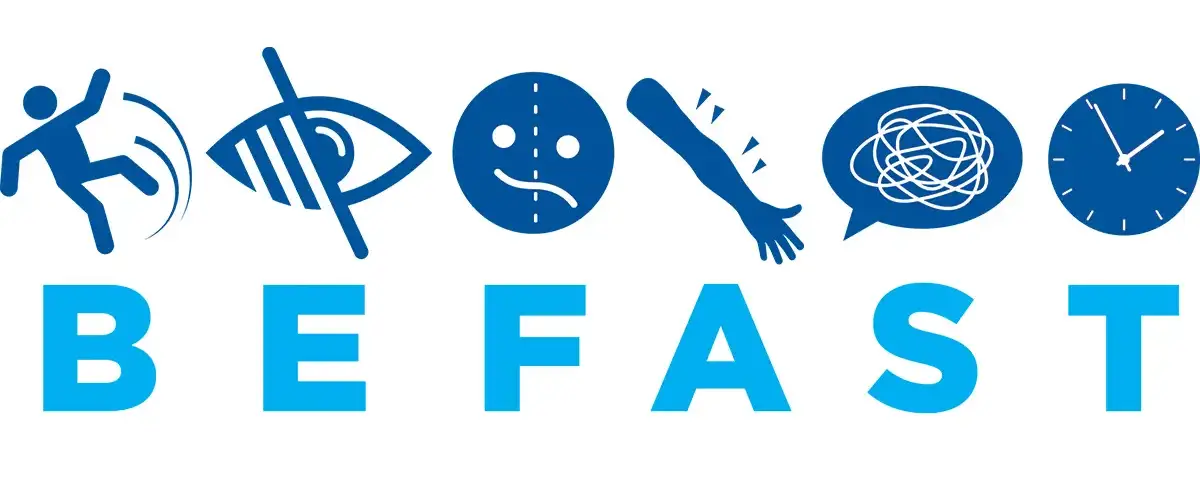A day in the life of a stroke network consultant
Lauren Burchell, a St. Louis–area stroke network consultant for BJC HealthCare, helps patients from behind the scenes by educating nurses and physicians on how to spot the more subtle symptoms of stroke when assessing patients.
The BJC Stroke Network links hospitals and stroke care providers, fostering a supportive environment to share ideas, resources and expertise, with the goal of improving stroke care and patient outcomes across regions. A lack of neurological expertise, education and resources, particularly in rural areas, is one of the obstacles in stroke care.

“We attempt to address this challenge by connecting with hospitals to provide them with more stroke education resources,” says Burchell, who helps teach hospital staff ways to better assess stroke symptoms. “There could be minute symptoms — small things you may not notice,” Burchell says. “My class is about increasing comfort with stroke assessment. My biggest goal is to be approachable so that anyone feels comfortable asking me anything.”
What’s a typical day like for you?
I work with hospitals over a 250-mile radius. I also do patient follow-ups, sending information on the patient’s presentation, symptoms and images from before and after stroke intervention, if available, to the stroke program manager. These follow-ups are critical to close the loop for patients who are transferred to Barnes-Jewish Hospital and help with process improvements.
I visit a lot of rural hospitals and help them if they don’t have neurology and educational resources. [According to an article published by the National Library of Medicine, “Rural residents are often far from specialized stroke care. Only 1% of people living in rural areas reside within 60 minutes of a Primary Stroke Center.”] We educate and train on recognizing a stroke and what to do. I also work on process improvement, so if they have a patient come in and they’re slow to get the patient’s CT scan, for example, I help them work on that process.
How did you prepare for this role?
I worked for years in the emergency department as an RN. I also worked in the intensive care unit during the COVID-19 pandemic, on a stroke team at a Level 1 stroke center and as a rapid response nurse. All those experiences really helped me get into the mindset for this role, which largely depends on building relationships with and being supportive to hospital staff.
What motivates you to do this work?
I feel like I’m helping more patients this way than when I was on the front line as a nurse. We cover a large area and I’m helping people everywhere, working with stroke coordinators at hospitals in different systems. I hear how what I do helps them, and it really motivates me to keep doing it. I love neurology, and I’m a people person. And every day is different –– you never know what the day is going to bring.
Do you have any stories about a time when someone at BJC went above and beyond to provide care to patients?
Our stroke coordinators at all our facilities are very dedicated to the role. A lot goes into providing stroke education, building collaboration between facilities, getting people excited about stroke care and spreading awareness, assisting with workshops related to stroke care and more.
The stroke coordinators do so much work behind the scenes to make sure our stroke patients get the care they need. If I had to applaud anyone, it would be every BJC stroke coordinator.
What do you do to stay healthy and wind down after a long day?
I have a 14-year-old son, a husband and cats who all keep me busy. I enjoy going on walks, hiking, being in nature and fishing. Before I got into health care, I was on the road to pursuing wildlife biology. I love animals — I even have two geckos.
I love the outdoors, which is important in this role because you can spend a lot of time indoors.
The BJC Stroke Center is committed to providing excellent and comprehensive care for people who have suffered a stroke. Quick intervention is critical for stroke victims in order to preserve brain function and prevent death. Read more about strokes here.

- Resource